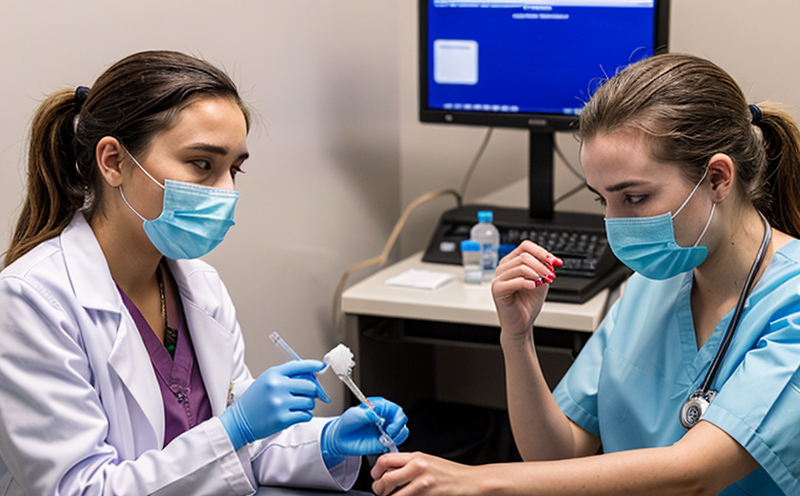CDC MRSA Detection Testing in Clinical Samples
The detection of Methicillin-Resistant Staphylococcus aureus (MRSA) is a critical component of clinical microbiology, especially for quality managers and compliance officers. This testing ensures that patients receive appropriate treatment and helps prevent the spread of this antibiotic-resistant pathogen within healthcare facilities.
MRSA can cause severe infections in individuals with compromised immune systems, elderly populations, or those undergoing invasive medical procedures. The Centers for Disease Control and Prevention (CDC) guidelines emphasize early detection to manage MRSA effectively. Our service adheres strictly to these standards and uses advanced techniques like polymerase chain reaction (PCR), mass spectrometry, and automated identification systems.
Our laboratory processes clinical samples such as blood cultures, wound swabs, sputum, and pus from deep tissue infections. Specimen preparation involves careful aseptic technique to maintain the integrity of the sample while minimizing contamination. Once prepared, the samples are processed using molecular diagnostic methods that target specific MRSA genes.
The results are typically available within 24 hours, allowing for prompt initiation or adjustment of treatment protocols. Our highly trained microbiologists ensure accurate interpretation and reporting of test results, ensuring compliance with CDC guidelines for infection control measures in healthcare settings.
Our service is designed to meet the stringent requirements set by the CDC, including adherence to ISO 15189:2012 standards for quality management systems in medical laboratories. This ensures that our testing methods are reliable and reproducible. Our laboratory also participates in proficiency testing programs organized by external bodies like the College of American Pathologists (CAP) to validate our test accuracy.
In summary, our CDC MRSA Detection Testing service is essential for maintaining high standards of patient care and infection control within clinical settings. By leveraging cutting-edge technology and adhering strictly to CDC guidelines, we provide reliable and timely results that can significantly impact patient outcomes.
Why It Matters
The detection of MRSA is crucial for healthcare providers as it allows for the early identification and treatment of infected patients. This not only improves patient outcomes but also reduces the risk of transmission to other individuals within the healthcare environment.
MRSA infections can lead to complications such as sepsis, pneumonia, and bloodstream infections if left untreated. Early detection through our service helps in implementing appropriate isolation protocols and antibiotic therapy, thereby preventing further spread of the infection.
Compliance with CDC guidelines ensures that healthcare facilities meet best practice standards for infection control. This is particularly important given the increasing prevalence of antibiotic-resistant bacteria worldwide. By adhering to these guidelines, we contribute to a safer healthcare environment for all patients and staff.
Industry Applications
- Hospital Infection Control Programs: Our service helps hospitals monitor MRSA infection rates and implement targeted interventions to reduce the incidence of nosocomial infections.
- Infectious Disease Research: Researchers utilize our testing capabilities to study the genetic markers of MRSA, contributing to ongoing efforts in antimicrobial resistance research.
- Veterinary Medicine: Our expertise extends to non-human populations where MRSA can pose significant health risks.
International Acceptance and Recognition
The CDC MRSA Detection Testing service we offer is recognized internationally for its adherence to global standards. Our laboratory participates in various international proficiency testing programs, ensuring our methods align with international best practices.
We are accredited by the College of American Pathologists (CAP), a leading organization that sets stringent criteria for medical laboratories worldwide. CAP accreditation signifies that our laboratory meets high-quality standards and provides reliable test results.
Our compliance with ISO 15189:2012 ensures consistency in our testing methodologies, which is recognized globally by regulatory bodies. This international acceptance enhances the credibility of our results, making them widely applicable across different healthcare settings.





